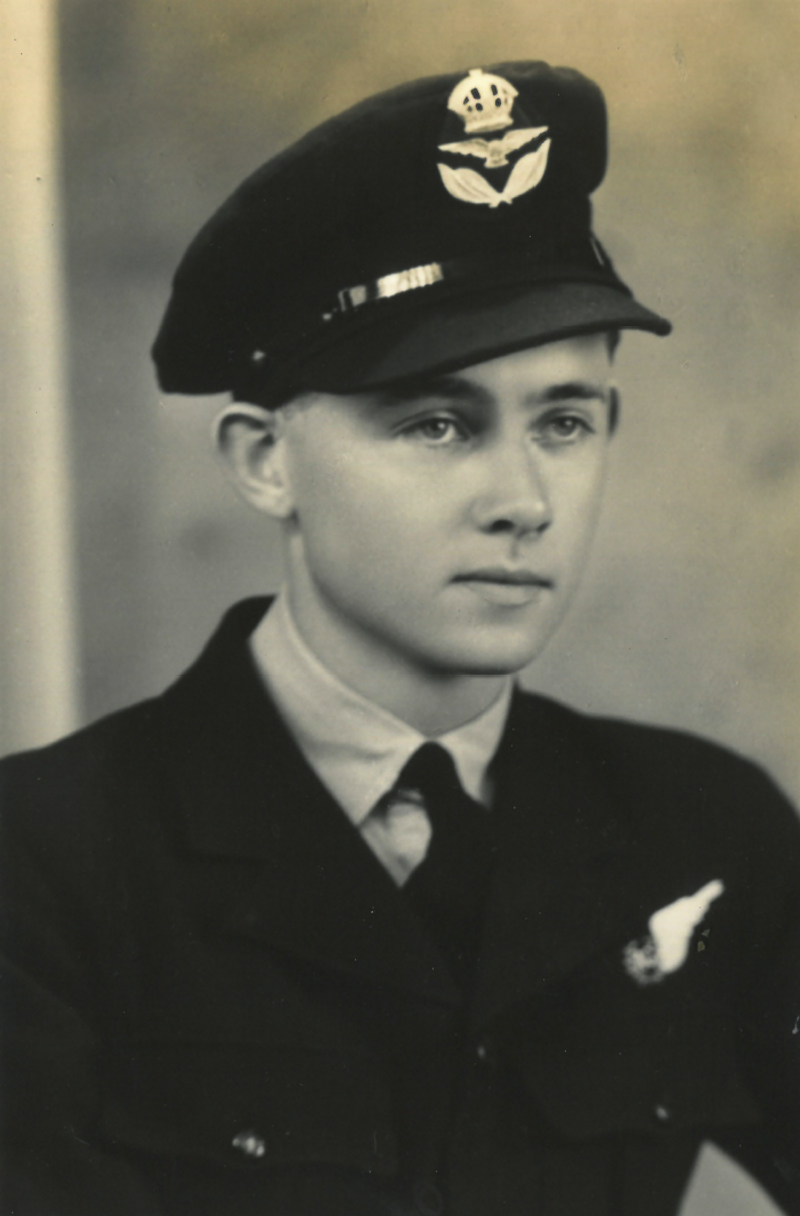Contact

Class of 1940
Son of Thomas Cullity CBE BE and Margaret Mary née Anglin John Cullity’s story is one every young Aquinian should know. John’s
education spanned the halcyon days, 1933-37, of CBC Perth at the Terrace and the pioneering years of Aquinas, 1938-40. Like most of the Cullity dynasty, he was strong in sport and academia. As a prefect and captain of the Cadet Corp, in his last year, he was elected by his fellow graduands to represent them at the 1940 Speech Night and give the traditional Year 12 Speech on their behalf. The title he chose was “The Evils of Totalitarianism”. He spoke forcefully and his speech was a great success. However, of all the stories of old Aquinians told here, that of John Cullity’s World War II experience is most likely to make it to the big screen.
During the week before his 21st birthday, he was a rear gunner in a Lancaster bomber on a mission to “do a bash”, as it was called, in Northern France against the German Rocket Bomb Sites which were peppering England with rocket bombs fired by Germany’s newly developed weapon. The German sites were heavily protected with searchlights guiding their anti-aircraft cannon and machine guns firing at the British bombers which were intent on destroying the German sites. As his Lancaster flew in to release its bombs the sound of deadly German fire split the air, and they took out both left side motors of his plane. The pilot of John’s Lancaster was the very experienced Wing Commander Donaldson, a veteran of many raids, who quickly realised the situation and his authoritative voice came urgently through John’s earphones “Crew bailout! Bailout!”! He remembered: “My eyeballs bulged as the gravity force loaded my body and squashed down until I couldn’t move”. He struggled to attach his parachute while pinned to the lid of the chemical loo of the plane thinking “I’m going to heaven on a dunny seat!” The plane went into a steep diving turn. At the last minute, he was able to clip his parachute on crawled against gravity to find his crewmates waiting for him at the hatch. Somehow he and the crew successfully pulled themselves out of the tumbling aircraft and John safely reached the ground after swinging in his parachute counter-cyclically against the German searchlights and machine guns determined that he wouldn’t reach the ground alive.
John hit the ground alone after midnight on June 25, 1944. He landed in a wheat field about 500 yards from an enemy V-1 rocket bomb launch pad. He could see and hear the flash and roar of the rockets launching and thought at first it was another Lancaster coming down. Reported “Missing in action”, this caused huge consternation back in Perth where relatives prayed daily at Holy Rosary Nedlands and Loreto Convent, Webster Street for his safe return. Unbeknown to them he lived behind enemy lines amongst the French Resistance helping them to sabotage German initiatives. His previous Headmaster Brother William Virgil Green and his 1941 year at UWA had equipped him with excellent French, which helped him not only to survive but able to take the lead for fellow Allied airmen ‘in hiding’ who had little or no French.
John had a front-row seat for the German withdrawal in August 1944 through Northern France. He also witnessed the reprisals that took place amongst the French on those who had collaborated with the Germans. Finally, John caught a lift back to England in an American Dakota via Paris. He returned to his Squadron and volunteered to return to its operations but this was denied him and he was directed to a ship that brought him back to Oz.
He arrived back home in Perth in early 1945 a couple of months ahead of VE Day (Victory in Europe) in May. The following year he married his childhood sweetheart Helen Mary Nash and joined his father’s timber business, Cullity Timbers. John ran it for 25 years. At the age of 75, he wrote his memoirs displaying an outstanding eye for detail after so many years and concluded: “I had played a game of Russian roulette and survived”. He passed away aged 82 in 2005.


